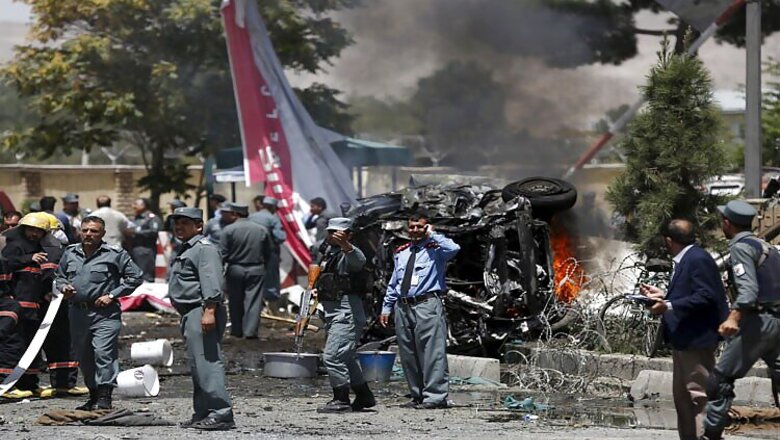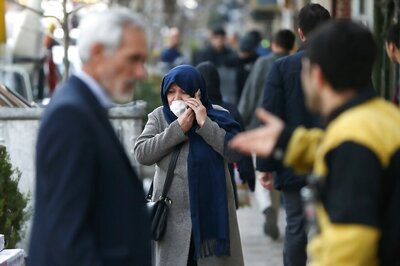
views
KABUL: A car bomb exploded near the entrance to Kabul airport on Monday, killing at least five people and wounding 16, days after a series of suicide attacks in the Afghan capital killed dozens of civilians and wounded hundreds more.
The wave of bombings in Kabul and provincial centres follows a change of leadership in the Afghan Taliban, after last week's revelation of the death of their founder, Mullah Mohammad Omar, and a dispute over the leadership of the insurgency.
The attacks have dashed any hope of an immediate resumption of peace talks with the government, and suggest new Taliban leader Mullah Mohammad Akhtar Mansour intends to send a message that there will be no let up in the insurgency.
"These attacks demonstrate an extreme level of atrocity by terrorists against innocent and defenseless civilians," the interior (home) ministry said in a statement.
The Taliban claimed responsibility for Monday's suicide attack in a crowded area outside an airport checkpoint, saying it was targeting "foreign forces".
A security official at the scene said the attack appeared to have been aimed at two armoured cars, although it was not clear who was in the vehicles.
Minutes after the attack, the tangled, flaming wreckage of one of the cars lay on its side, as dozens of fire fighters and police gathered at the spot.
Kabul police chief Abdul Rahman Rahimi said five people had died in the attack and 16 were wounded. A woman and a child were among the injured, public health ministry spokesman Wahidullah Mayar had said earlier.
Taliban spokesman Zabihullah Mujahid said the occupants of the two vehicles targeted were foreigners and had all been killed. He denied that any Afghan civilians died in the attack.
The heavily fortified Afghan capital was already on high alert following last week's attacks, which killed at least 50 civilians and security forces personnel.
Conflict between the Western-backed government and the Taliban has intensified this year, with civilians and Afghan security forces taking the brunt of the violence after the NATO combat mission ended in 2014.
The government of President Ashraf Ghani, weakened by infighting between coalition partners, has struggled to respond to the crisis.
The challenge has been made more complicated by the opaque situation surrounding the Taliban leadership, with several senior figures in the insurgent movement calling for a new council to decide the issue.
Mansour's swift appointment by a small council of leaders in the Pakistani city of Quetta has angered many, causing rifts within the movement and fuelling speculation that the latest violence is linked to the leadership dispute.
The Taliban are seeking to re-establish their hard-line Islamist regime after they were toppled by U.S.-led military intervention in 2001.
Last Friday, a massive truck bomb in a residential area of Kabul killed at least 15 people and wounded 248.
That evening, suicide attacks on a police academy and a base used by U.S. special forces killed more than 30 police and security contractors, besides an American soldier.



















Comments
0 comment